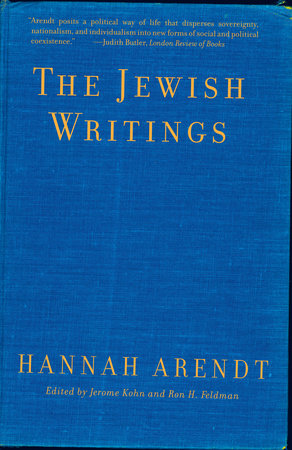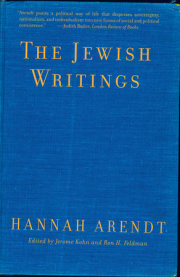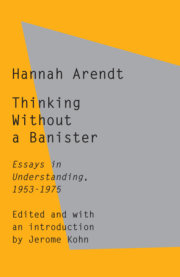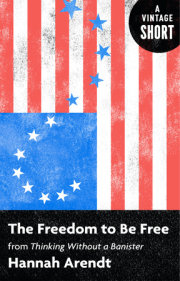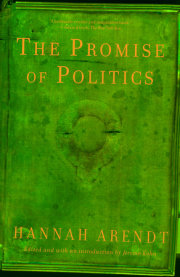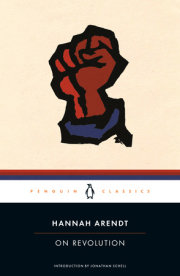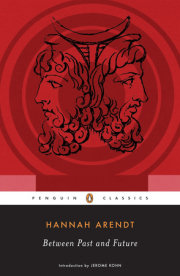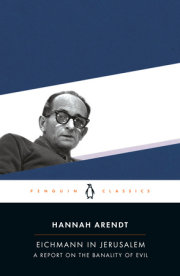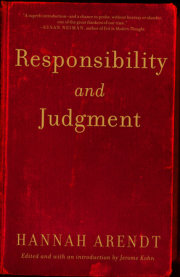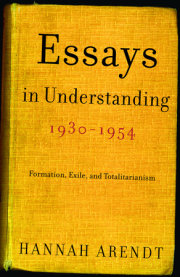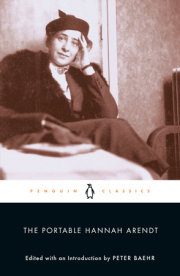The Enlightenment and the Jewish QuestionThe modern Jewish question dates from the Enlightenment; it was the Enlightenment—that is, the non-Jewish world—that posed it. Its formulations and its answers have defined the behavior and the assimilation of Jews. Ever since Moses Mendelssohn's genuine assimilation and Christian Wilhelm Dohm's essay "On the Civic Improvement of Jews" (1781), the same arguments that found their chief representative in Lessing appear over and over in every discussion of Jewish emancipation. It is to Lessing that such discussions owe their propagation of tolerance and humanness, as well as the distinction between the truths of reason and those of history. This distinction is of such great importance because it can legitimate each accidental instance of assimilation that occurs within history and thus needs to appear merely as an ongoing insight into the truth and not as the adaptation and reception of a particular culture at a particular, and thus accidental, stage of its history.For Lessing, reason, which all humans share in common, is the foundation of humanity. It is the most human connection that binds Saladin with Nathan and the Templar.* It alone is the genuine connection linking one person with another. The emphasis of humanness based on what is reasonable gives rise to the ideal of tolerance and to its promulgation. His notion that deep inside every human being—despite differences of dogmatic convictions, morals, and conduct—is the same human being, his reverence for all that bears a human countenance, can never be derived solely from the general validity of reason as a purely formal quality; rather, the idea of tolerance is intimately connected with Lessing's concept of truth, which for its part can be understood only within the context of his theological thought and his philosophy of history.Truth gets lost in the Enlightenment—indeed, no one wants it anymore. More important than truth is man in his search for it. "Not the truth that someone has in his possession, but rather the honest effort he has made to get behind the truth is what defines human worth."[1] Man becomes more important than the truth, which is relativized for the benefit of "human worth." This human worth is discovered in tolerance. The universal rule of reason is the universal rule of what is human and humane. Because this humanness is more important than any "possession of the truth," the father in Lessing's fable gives each of his three sons a ring, but does not tell them which is the genuine ring, with the result that the genuine one is in fact lost. The German Enlightenment as represented by Lessing did not simply lose truth as religious revelation, but rather the loss is seen as something positive: the discovery of the purely human. In striving for what is genuine, man and his history—which is a history of searching—gain a meaning of their own. Man is no longer simply in charge of what is good, with his own meaning dependent on its possession; instead, by searching he can confirm this possession, which is neither objective nor salvatory. If the search for truth, the "expansion of one's energies," is regarded as the only substantial issue, then for the tolerant man—that is, for the truly human man—all religious faiths are in the end merely different names for the same man.History has no power to prove anything to reason. The truths of history are accidental, the truths of reason are necessary, and accident is separated from necessity by a "nasty wide ditch," which to leap across would require a "metabasi ei' a'llo geno." The truths of history are simply not true, no matter how good the evidence, because both their factuality and their attestation are always accidental—the latter being likewise historical. The truths of history are "true"—that is, universally persuasive and binding—only to the extent that they confirm the truths of reason. So it is reason that must decide the necessity of revelation—and thus of history.[2] The accident of history can be ennobled by reason after the fact; reason decides subsequently that revealed history is identical with reason. Revealed history functions as humanity's educator. At the end of such an education, which we experience as history, will come the time of a "new eternal gospel" that will make further lessons superfluous. The end of history is its dissolution, when what is still relatively accidental is transformed into what is absolutely necessary. "Such an education provides man with nothing that he could not also have on his own"; it merely leads him to a perfection that in actuality already lies within him. Since reason is already included within revelation, history teaches reason to stand on its own. The goal of both divine revelation and human history is man's coming of age.One consequence of history as educator is not entirely accessible to reason. Reason can only confirm history's "that," but must let go of its "how" as something outside its own purview. "But if a revelation can and must be a revelation, then it must be one more proof to reason of its own truth rather than an infringement on it, should reason find in revelation things beyond it." This statement does not imply a new acknowledgment of divine authority. It must be viewed in conjunction with Lessing's primary theological thesis: that religion is prior to and independent of Scripture. Truth as thesis, dogma, or as an objective and salvatory possession is not what is essential; religiosity is.At first glance this seems nothing more than an enlightened version of Pietism. Lessing's
Fragments of an Unknown can be confusing only to a theologian, not to a Christian, in the midst of whose faith Christ is unassailable, because such faith is pure internality. "Do this man's explanations, hypotheses, and proofs matter to the Christian? For him it's simply there, his Christian faith, which he feels to be so true, in which he feels so blessed." But underlying this emphasis on unassailable internality is the Enlightenment's mistrust of the Bible; pure internality is stressed because the objectivity of Scripture's revelation is no longer certain. The separation of religion and the Bible is the final futile attempt to salvage religion—futile because such a separation destroys the Bible's authority and, with it, God's visible and knowable authority on earth. "Religion is not true because the evangelists and apostles taught it, rather they taught it because it is true." If the truth of religion precedes the Bible, it is no longer objectively certain, but must be searched for. This enlightened acceptance of pietist religiosity simultaneously destroys Pietism. What is new is not the emphasis on internality, but rather that it is played off against objectivity.History, then, appears in Lessing's work in two heterogeneous contexts. First, history is the eternal search for truth; it begins with man's coming of age, but beyond that its horizon is limitless. Second, history is the educator of the human race, but it makes itself superfluous and ceases with man's coming of age. The first understanding of history allows man, once he has become aware of his reason, to begin anew and establish a history. This understanding is the only one that remains determinative in Mendelssohn's reception of Lessing's thought. But for Lessing this history that is to be founded anew is definitely anchored in the past. The past ruled by authority is, after all, an educator. Man has only just come of age—through an education God grants to man. Man's coming of age marks the beginning of a second history, which differs from the first in that, although it does not renounce every goal, it shifts any such goal to limitless time in general—truth is a goal reached only by approximation and in stages of increasing perfection. This theory of history has a fundamentally different structure from that presented in
The Education of the Human Race. It is in no way a secularization of Christianity—and cannot be, since in it truth is reserved only for God[3]—but rather from the start it is directed solely toward man; it shifts truth as far into the future as possible, since truth is really not the concern of earthly man. Possession of the truth actually impedes the development of all of man's possibilities, inhibits the requisite patience, and turns his gaze away from what is human. Truth is of concern to God alone and is of no importance to man. This exclusive and unreserved affirmation of the eternally open-ended and fragmentary nature of all things human solely for the sake of humanity is shunted aside in
The Education of the Human Race.In Mendelssohn's reception of the Enlightenment, his "formation" (
Bildung) still takes place within the context of an absolute allegiance to the Jewish religion. Defense of this allegiance—for instance against J. K. Lavater's attacks—was of great importance to him. Lessing's separation of the truths of reason and history provided him the means for his defense. But along with his apologia for Judaism he had to maintain the possibility of his own "formation"—and the absolute autonomy of reason asserted by the Enlightenment served his purpose. "Minds that think for themselves," Lessing says, "have the capacity to ignore the entire expanse of erudition and to realize that they must find their own path across that expanse the moment it is worth the effort to enter upon it."[4] This idea of being able to think for oneself is the foundation of Mendelssohn's ideal of formation; true formation is not nourished by history and its facts, but instead makes them superfluous. The authority of reason prevails, and everyone can come to it alone and on his own. The thinking man lives in absolute isolation; independent of all others he finds the truth, which actually should be common to all. "Every man pursues his own path through life. . . . But it does not seem to me that it was the purpose of Providence for all humanity here below constantly to move forward and perfect itself over time." For Mendelssohn reason is even more independent of history, nor is it anchored in it. He expressly argues against Lessing's philosophy of history, against "the education of the human race, which my late friend Lessing fancied at the urging of some researcher of history or other."[5] A knowledge of history is not yet necessary for Mendelssohn's formation, which is simply liberation to think. He innately owes nothing to any object of the alien world of culture; he does not need to discover his "standing-in-nothing" within the dominant intellectual atmosphere.In adopting the idea of autonomous reason, Mendelssohn had focused solely on the notion of thinking for oneself and remaining independent of all facts (whereas for Lessing, reason was a path for discovering what is human); so, too, the theory of the distinction between the truths of reason and history is given a new twist: Mendelssohn uses and dogmatizes it in his apologia for Judaism. For Mendelssohn the Jewish religion, and only it, is identical with what is reasonable, and that is because of its "eternal truths," which alone also entail religious obligations. The truths of Jewish history, Mendelssohn continues, were valid only as long as the Mosaic religion was the religion of a nation, which was no longer the case after the destruction of the Temple. Only "eternal truths" are independent of all Scripture and apprehensible in every age; they are the basis of the Jewish religion, and it is because of them that Jews are still bound to the religion of their fathers even today. If they were not to be found in the Old Testament, then neither the Law nor historical tradition would be of any validity. Because there is nothing in the Old Testament that "argues against reason,"[6] nothing counter to reason, the Jew is also bound to those obligations that stand outside of reason, but to which no non-Jew should ever be explicitly bound, since they separate men from one another. Eternal truths are the foundation of tolerance. "How happy the world in which we live would be, if all men were to accept and practice the truth that the best Christians and the best Jews have in common."[7] For Mendelssohn the truths of reason and history are different only in kind and are not ascribed to different stages in humanity's development. Reason is shared by all men, is equally accessible to all people in all ages. The paths to it, however, differ, and for Jews this includes not only acceptance of the Jewish religion, but also strict adherence to its Law.Lessing made his distinction between reason and history in order to put an end to religion as dogma. Mendelssohn attempts to use it specifically to salvage the Jewish religion on the basis of some "eternal content" independent of its historical attestation. But the same theological interest that removes reason from history also removes the seeker of truth from history. All reality—the world around us, our fellow men, history—lacks the legitimation of reason. This elimination of reality is closely bound up with the factual position of the Jew in the world. The world mattered so little to him that it became the epitome of what was unalterable. This new freedom of reason, of formation, of thinking for oneself, does not change the world at all. The "educated" Jew continues to regard the historical world with the same indifference felt by the oppressed Jew in the ghetto.This failure of Jews to appreciate history—based in their fate as a people without a history and nourished by an only partially understood and assimilated Enlightenment—is intersected at one point by Dohm's theory of emancipation, an argument that remained crucial for the decades that followed. For Dohm—the first writer in Germany to systematically take up their cause—Jews are never the "people of God" or even of the Old Testament. They are human beings like all other human beings, except that history has ruined these human beings.[8] But only Jews now take up this concept of history, since it provides them an explanation for their cultural inferiority, their lack of education and productivity, their deleterious effect on society. For them history becomes on principle the history of what is alien to them; it is the history of the prejudices that held sway over people prior to the Enlightenment. History is the history of a bad past or of a present still caught up in prejudice. Liberating the present from the burden and consequences of this history becomes the task of liberating and integrating Jews.* In Lessing's play
Nathan the Wise.—Ed.
NOTES[1] G.E. Lessing,
Theologische Streitschriften [Theological disputations], "Eine Duplik" ["A Rejoinder"].[2] Cf. Lessing,
Zur Geschichte und Literatur [On history and literature], from the fourth article, "Ein Mehreres aus dem Papieren des Ungenannten, die Offenbarung betreffend" [Diverse items from the papers of an unknown man concerning revelation].[3] Cf. Lessing,
Theologische Streitschriften, "Eine Duplik," p. i.[4] Lessing,
Theologische Streitschriften, "Anti-Goeze" [Answer to Goeze], p. ix.[5] Moses Mendelssohn,
Jerusalem.[6] Mendelssohn,
Correspondez mit dem Erbprinzen von Braunschweig-Wolfenbüttel [Correspondence with the hereditary prince of Braunschweig-Wolfenbüttel], 1776.[7] Mendelssohn in a letter to Bonnet, 1770; cf. Moses Mendelssohn,
Gesammelte Schriften [Collected works], vol. 7, p. lxxxii ff.[8] Christian Wilhelm Dohm,
Ueber die Bürgerliche Verbesserung der Juden [On the civic improvement of Jews] (1781), vol. 1, p. 45; vol. 2, p. 8: "That the Jews are human beings like all other human beings; that they should therefore be treated like all other men; that it is only barbarism and religious prejudice that has demeaned and ruined them; that only the opposite treatment commensurate with common sense and humaneness can make of them better men and citizens...these are such natural and simple truths that to understand them and concur with them are almost one and the same thing."
Copyright © 2007 by Hannah Arendt. All rights reserved. No part of this excerpt may be reproduced or reprinted without permission in writing from the publisher.

